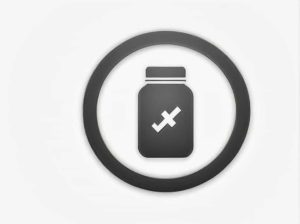Embarking on a nursing career requires completing specific prerequisite courses that lay the foundation for nursing education. These courses typically cover subjects like anatomy physiology microbiology chemistry and mathematics. Understanding where and how to complete these prerequisites is crucial for aspiring nurses.
Understanding Nursing Prerequisite Courses
Common Prerequisite Subjects
Before enrolling in a nursing program students are generally required to complete courses in:
- Anatomy and Physiology: Understanding the human body’s structure and function.
- Microbiology: Studying microorganisms and their effects on humans.
- Chemistry: Basic chemical principles relevant to biological processes.
- Mathematics: Often statistics or algebra essential for dosage calculations.
- English Composition: Developing communication skills necessary for patient interaction and documentation.
Purpose of Prerequisites
These courses ensure that students have the foundational knowledge necessary to grasp more advanced nursing concepts. They also prepare students for the rigorous coursework encountered in nursing programs.
Where to Take Nursing Prerequisite Courses
Several educational institutions offer nursing prerequisite courses:
1. Community Colleges
Advantages:
- Accessibility: Community colleges are widespread and often have flexible scheduling options.
- Cost-Effective: Tuition is typically lower compared to four-year institutions.
- Transferable Credits: Many community colleges have articulation agreements with universities facilitating credit transfer.
Considerations:
- Ensure that the courses are transferable to your intended nursing program.
- Verify that the community college is accredited.
2. Four-Year Universities
Advantages:
- Comprehensive Resources: Access to extensive libraries labs and research facilities.
- Seamless Transition: If you plan to pursue a Bachelor of Science in Nursing (BSN) at the same institution completing prerequisites there can streamline the process.
Considerations:
- Higher tuition costs.
- Admission may be more competitive.
3. Online Courses
Advantages:
- Flexibility: Ideal for students balancing work or personal commitments.
- Self-Paced Options: Some courses allow you to progress at your own pace.
Considerations:
- Ensure the online institution is accredited.
- Verify that the nursing program accepts online course credits.
- Some subjects with lab components may require in-person attendance.
4. Technical and Vocational Schools
Advantages:
- Focused Curriculum: Programs tailored to healthcare professions.
- Accelerated Options: Some schools offer accelerated courses.
Considerations:
- Limited course offerings.
- Ensure credits are transferable to your desired nursing program.
Steps to Enroll in Prerequisite Courses
- Research Requirements: Identify the prerequisite courses required by your intended nursing program.
- Select an Institution: Choose a school that offers the necessary courses and fits your schedule and budget.
- Verify Accreditation: Ensure the institution is accredited to guarantee that credits will transfer.
- Meet Admission Criteria: Fulfill any admission requirements such as placement tests or prerequisite courses.
- Enroll in Courses: Register for the required classes keeping in mind any sequencing that may be necessary.
Tips for Success in Prerequisite Courses
- Time Management: Balance coursework with other responsibilities.
- Study Groups: Collaborate with peers to enhance understanding.
- Utilize Resources: Take advantage of tutoring centers libraries and online materials.
- Consistent Attendance: Regular attendance is crucial for comprehension and success.
Completing nursing prerequisite courses is a vital step toward a rewarding career in nursing. Whether you choose a community college university online platform or vocational school ensure that the courses align with your nursing program’s requirements and that the institution is accredited. With careful planning and dedication you’ll be well on your way to entering the nursing profession.



